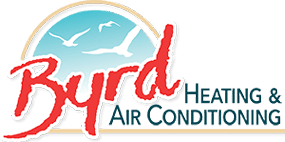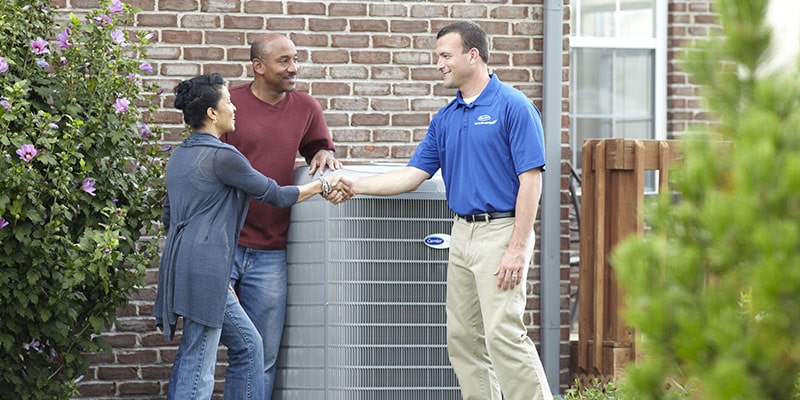With warm temperatures present throughout much of the year in Tybee Island, Georgia, locals rely on air conditioning systems to keep their homes and office buildings cool and comfortable. This area also has high humidity levels during the spring and summer months, so a working air conditioner is a necessity to keep indoor moisture under control. High energy bills, lack of cooling, moisture leaks, strange sounds, unpleasant odors, and more are signs that may signal you need an AC repair. If you notice any of these signs, bring in an expert to take a closer look to see what’s causing the problem.
Higher Energy Bills
You might see slight increases in your home’s utility bills as the seasons change. Using your home’s air conditioning system more during the summer months will use more energy, while the gas bill tends to increase during the winter when you run the furnace more often. However, significant increases from month to month could point to a problem with your cooling system.
One of the major causes of high energy bills is inefficiency, which can happen when your home’s ducts are full of dirt, dust, pet hair, dander, pollen, and other debris. The system has to work harder to push air through those clogged ducts, causing your system to waste energy. Other possible causes of poor efficiency include damaged components or closed air vents in certain rooms of the home.
Keep an eye on your utility bills each month instead of signing up for automatic payments and never taking a closer look at the total amount you owe. If you notice a sharp increase in the costs, bring in an HVAC technician to check your air conditioning system’s efficiency.
Warm Air From Your Air Conditioner
If you lower the temperature on your thermostat, the air conditioner should start blowing cool air through the vents in your home. Warm air coming through those vents could suggest a problem with the system. The cooling system may take a few minutes to start producing cold air, but you shouldn’t have to wait too long to feel the temperature in your home start to drop. When the system continues to push warm air instead of cool air, you may have a problem with the compressor or have low coolant levels.
An air conditioner works by pulling air into the compressor, removing heat and moisture, and pushing cool, dry air through the vents located throughout your home. If the compressor isn’t working correctly, you may need to have this part repaired or replaced. In some cases, replacing the compressor isn’t worth the value of the HVAC system, so replacing the unit itself could be a better option. If your cooling system is more than 10 to 15 years old, you’re probably due for a system upgrade. Newer systems are more efficient and can run on less energy, helping to save you money over time.
Moisture or Leaks
Leaking fluids or moisture in and around the air conditioning system is always cause for concern. If your air conditioning unit is hidden behind a wall in your basement or other room of your home that you don’t access as often, make a point to check your unit every month or so. You should be concerned if you see puddles of water or other liquids on the floor around the cooling system.
When your air conditioner runs, it allows condensation from the air to seep out through a drainage system. The pipe should sit over a drain in the floor for proper drainage. A clog in that pipe or drain can cause a puddle to form around the unit. During the warm summer months on Tybee Island, your air conditioner could produce a great amount of condensation. Without a way to drain, you could face water damage to the flooring and drywall, along with any of your personal possessions in the area.
Moisture within your HVAC system can also lead to mold growth. Mold spores in the air you and your family breathe can lead to serious allergic reactions, such as congestion, sore throats, and headaches. Breathing in mold can also exacerbate existing breathing problems, such as COPD and asthma. Prolonged mold exposure can lower your home’s indoor air quality and cause more health problems. Prevent mold by watching for signs of moisture in your system. If you already have mold growth in the ducts, an HVAC technician can remove the spores through a sanitizing treatment.
Ice on the Unit
If you notice ice crystals forming on the outdoor unit, you could have an issue with the coolant or a frozen evaporator coil. Your air conditioner should produce cold air, but it shouldn’t be so cold that the unit starts to freeze.
During the winter months, ice can form on the outdoor unit when temperatures drop below freezing overnight, but keeping your unit covered with a blanket can help reduce this risk. If this problem affects your outdoor unit, turn off the air conditioner and switch the fan setting to the on position. While the weather on Tybee Island can get chilly during the winter, temperatures rarely drop too far below freezing, so ice on the unit could point to a serious problem.
Allowing the air conditioner to keep running when the outdoor unit is frozen could damage the compressor, one of the most expensive components in the cooling system. Turn off your unit and get an HVAC company to perform maintenance servicing on your unit to prevent more issues.
Strange Sounds
Your air conditioner probably makes some noise when it turns on and off, as well as while it’s running. However, some sounds are cause for concern. Thumping, grinding, banging, and bumping noises definitely aren’t normal and call for an HVAC professional’s diagnosis. Bumping and banging sounds may mean that a part has come loose from its housing and is hitting against something else. Grinding and squealing noises could point to a broken belt or hose, lack of lubrication, or other issue.
If you hear something strange in your cooling system, turn off your air conditioner unit to avoid further damage that will be costly to repair. An experienced HVAC technician will be able to diagnose the problem and develop a plan to correct the issue for you.
Unpleasant Odors
When you catch a whiff of something foul, follow your nose to figure out what’s causing the odor. If the smell is coming from the vents, you could have a few issues going on within the HVAC system. Musty or moldy odors may mean that mold is growing within the unit or ducts. If you smell something pungent, you could be facing something less pleasant, such as a dead animal in the ducts. Sour or burning smells may mean that the wiring has burned out and needs replacement.
If you’ve turned on your air conditioner after a summer without much use, you could smell a mild electrical odor for a few minutes as the system warms up again. This smell is normal, but prolonged odors could be problematic. The worst odor you can smell is gas, which could mean you have a leak within your furnace. Letting the system run with that type of odor could put your home at risk for a fire.
Weak Airflow
When the flow of air coming through the vents is weak, you could have a failing compressor on your hands. As we mentioned, the compressor is one of the most expensive parts of the system, so replacing it may cost more than what your air conditioner is worth. If your unit is more than a decade old, it’s probably well worth the cost to replace the unit. You’ll enjoy improved efficiency and less worry about constant repairs, which can become more imminent as your air conditioner continues to get older.
If you notice any of the seven signs above at your Tybee Island home, call an HVAC company you can trust for repairs and maintenance services. You can always rely on our team of experienced professionals at Byrd Heating and Air Conditioning for your home’s cooling system repairs, so call us at 912-373-8447 to set up a service visit.


